
Makassar: The Gateway to Eastern Indonesia
Makassar, the bustling capital of South Sulawesi, is a vibrant city that serves as the gateway to the eastern part of Indonesia. Known for its rich history, diverse culture, and mouthwatering cuisine, Makassar offers a unique blend of traditional and modern attractions. The city's strategic coastal location has made it a significant trading hub for centuries, and this historical significance is still evident in its architecture and cultural landmarks. One of the must-visit spots in Makassar is Fort Rotterdam, a well-preserved Dutch colonial fort that now houses a museum showcasing the region's history. The Losari Beach is another highlight, offering stunning sunsets and a relaxed atmosphere for both locals and tourists. For those interested in local culture, a visit to the traditional Bugis and Makassarese houses provides insight into the unique architectural styles and way of life in this region. Food lovers will find Makassar a paradise, with a variety of local dishes that tantalize the taste buds. Don't miss out on trying Coto Makassar, a savory beef soup, and Pisang Epe, a delicious grilled banana dessert. The city's vibrant markets and street food stalls offer a gastronomic adventure that will leave you wanting more.
Local tips in Makassar
- Visit Fort Rotterdam early in the morning to avoid the crowds and the midday heat.
- Try Coto Makassar at a local warung (small restaurant) for an authentic taste of the city.
- Take a sunset stroll along Losari Beach for breathtaking views and a relaxed atmosphere.
- Use local transportation options like becak (pedicabs) for short distances to experience the city like a local.
- Visit the traditional Bugis and Makassarese houses for a deeper understanding of the local culture and architecture.
- Bring cash as many local vendors and markets do not accept credit or debit cards.
Makassar: The Gateway to Eastern Indonesia
Makassar, the bustling capital of South Sulawesi, is a vibrant city that serves as the gateway to the eastern part of Indonesia. Known for its rich history, diverse culture, and mouthwatering cuisine, Makassar offers a unique blend of traditional and modern attractions. The city's strategic coastal location has made it a significant trading hub for centuries, and this historical significance is still evident in its architecture and cultural landmarks. One of the must-visit spots in Makassar is Fort Rotterdam, a well-preserved Dutch colonial fort that now houses a museum showcasing the region's history. The Losari Beach is another highlight, offering stunning sunsets and a relaxed atmosphere for both locals and tourists. For those interested in local culture, a visit to the traditional Bugis and Makassarese houses provides insight into the unique architectural styles and way of life in this region. Food lovers will find Makassar a paradise, with a variety of local dishes that tantalize the taste buds. Don't miss out on trying Coto Makassar, a savory beef soup, and Pisang Epe, a delicious grilled banana dessert. The city's vibrant markets and street food stalls offer a gastronomic adventure that will leave you wanting more.
When is the best time to go to Makassar?
Iconic landmarks you can’t miss
Losari Beach Platform
Experience the vibrant culture and stunning sunsets at Losari Beach Platform, the heart of Makassar's coastal charm.
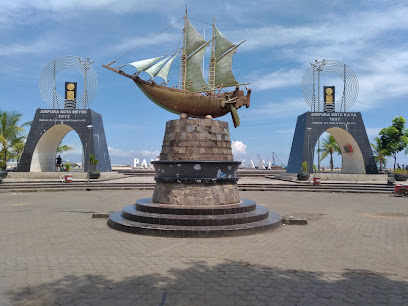
Fort Rotterdam
Explore the captivating history and stunning architecture of Fort Rotterdam, a premier historical landmark in Makassar, South Sulawesi.
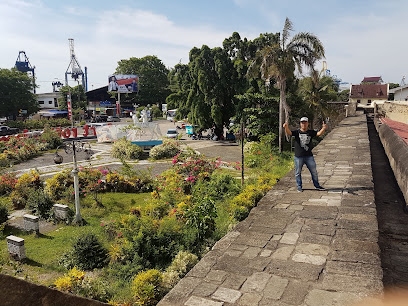
Bugis Waterpark Adventure
Dive into excitement at Bugis Waterpark Adventure, Makassar's premier water park with thrilling rides and family-friendly fun in a tropical setting.
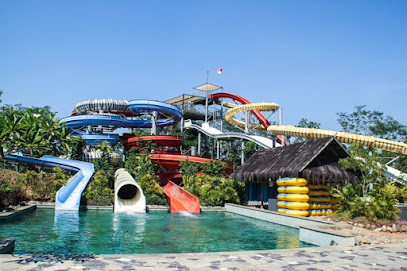
Tiger park
Discover the serene beauty of Tiger Park in Makassar—your gateway to lush landscapes and vibrant wildlife in South Sulawesi.
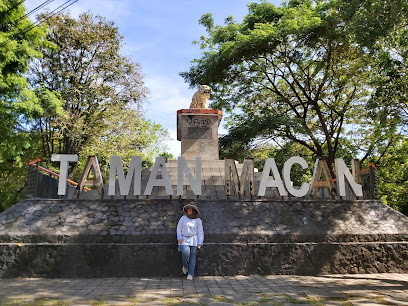
Fort van Gowa Sultanaat - Benteng Somba Opu
Discover the rich history and breathtaking views at Fort van Gowa Sultanaat - Benteng Somba Opu, a cultural gem in Makassar, South Sulawesi.
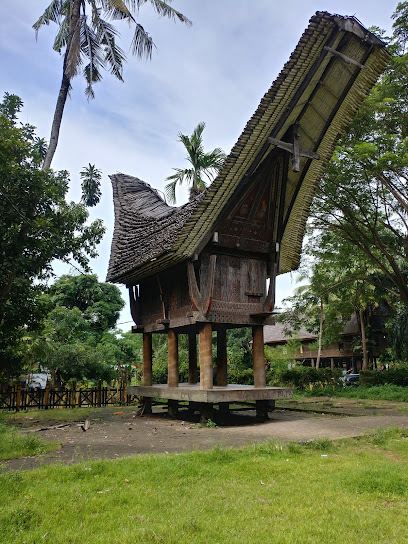
Mandala Monument of West Irian Liberation
Discover the Mandala Monument of West Irian Liberation in Makassar, Indonesia – a striking symbol of freedom and cultural heritage.
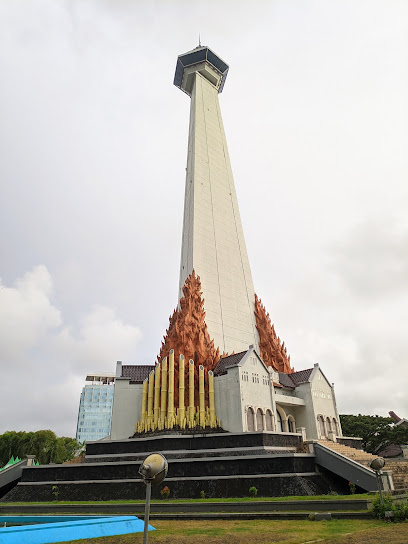
Dermaga Kayu Bangkoa
Experience the tranquil charm and stunning views at Dermaga Kayu Bangkoa, the gateway to island adventures in Makassar.
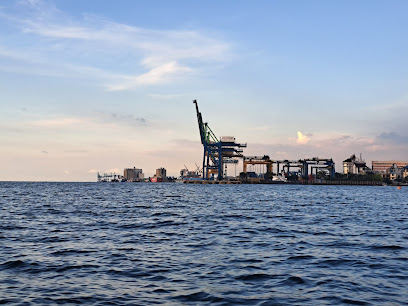
Museum of Makassar
Explore the Museum of Makassar – A Cultural Gem Unveiling the Rich History of Sulawesi and Its People.
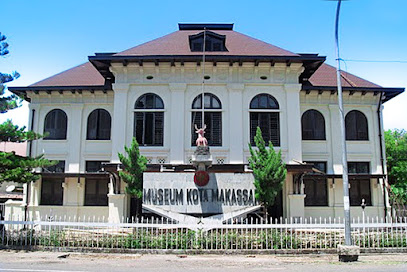
La Galigo Museum
Discover the vibrant history of Sulawesi at La Galigo Museum, a cultural gem in Makassar showcasing local heritage and traditions.
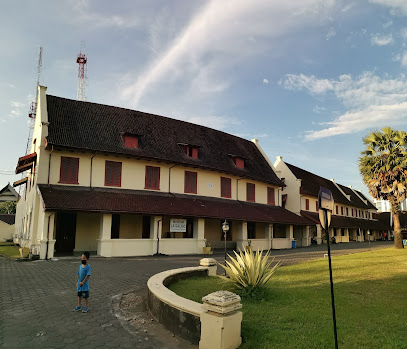
Travel Island Lakkang
Explore the tranquil shores and lush landscapes of Travel Island Lakkang, a natural paradise in Makassar, South Sulawesi, perfect for relaxation and adventure.
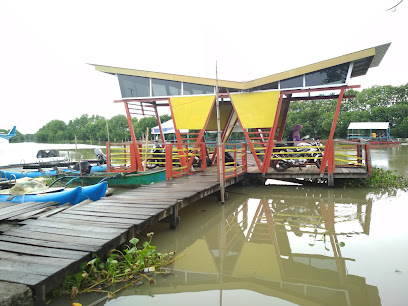
Pulau Kodingareng Keke
Explore the pristine beauty and vibrant marine life of Pulau Kodingareng Keke, a hidden gem in South Sulawesi perfect for relaxation and adventure.
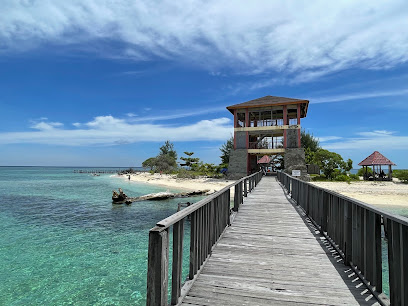
Eks Raad van Justitia te Makassar
Explore the historical significance and stunning architecture of Eks Raad van Justitia, a landmark that tells the story of Makassar's colonial past.
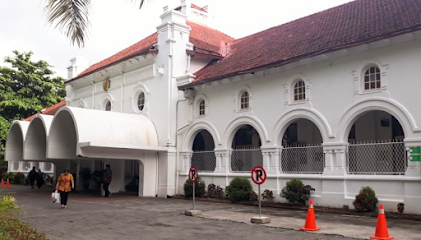
Jalanan Tutup
Discover the enchanting historical landmark of Jalanan Tutup in Makassar, a window to the rich cultural heritage of South Sulawesi.
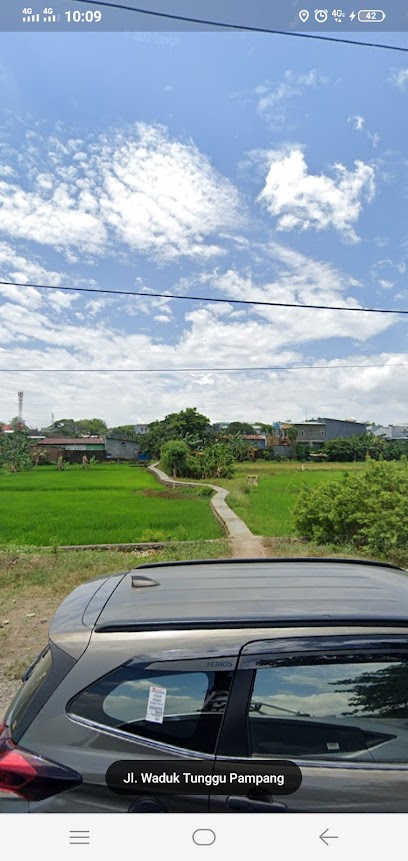
lokasi 1
Explore Makassar's Architectural Salvage Store for unique historical artifacts and treasures that embody the city's rich architectural heritage.
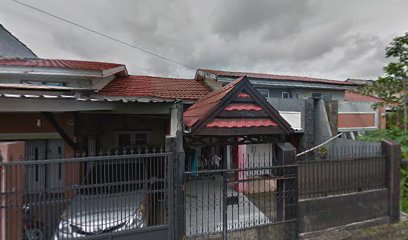
Prisão dentro do Forte de Makassar
Step into the past at Fort Makassar's Prison, a historical landmark showcasing the rich heritage of South Sulawesi and Indonesia's intriguing history.
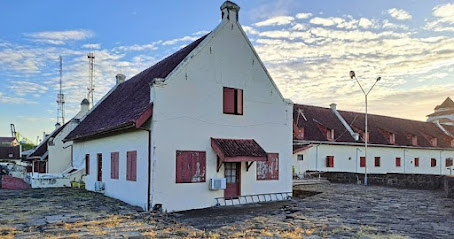
Unmissable attractions to see
Losari Beach Platform
Explore the lively Losari Beach Platform, a cultural and scenic hub in Makassar offering stunning views and delicious local cuisine.
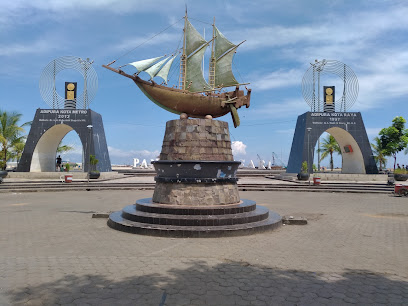
Fort Rotterdam
Explore Fort Rotterdam, a historical fortress in Makassar, where colonial history meets vibrant culture in South Sulawesi.
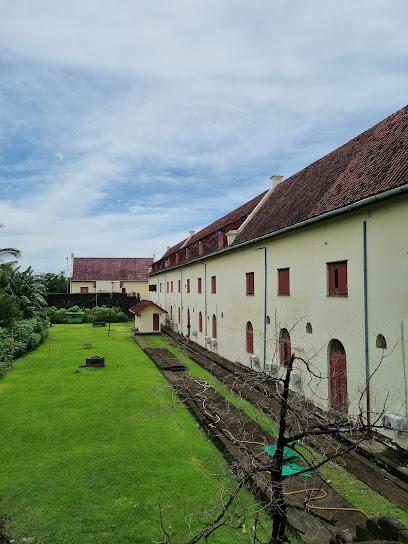
Masjid Raya Makassar
Explore the architectural beauty and spiritual significance of Masjid Raya Makassar, a remarkable mosque in the heart of Sulawesi.
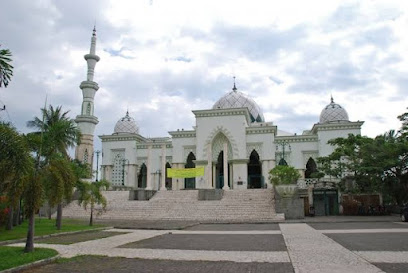
Pantai Losari
Explore the breathtaking beauty and vibrant culture of Pantai Losari, a must-see beach destination in Makassar, Indonesia.
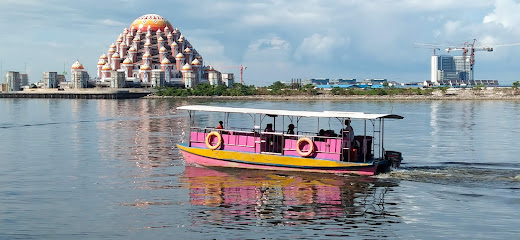
Bugis Waterpark Adventure
Experience the ultimate fun and relaxation at Bugis Waterpark Adventure in Makassar, a perfect destination for thrill-seekers and families alike.
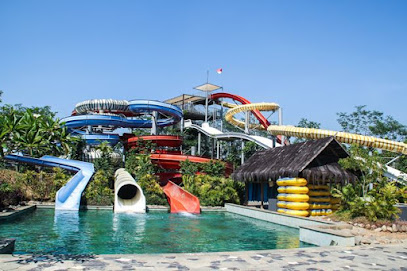
Masjid Amirul Mukminin - Masjid Terapung
Discover the serene beauty of Masjid Amirul Mukminin, the stunning floating mosque in Makassar, where architecture meets tranquility amidst picturesque waters.
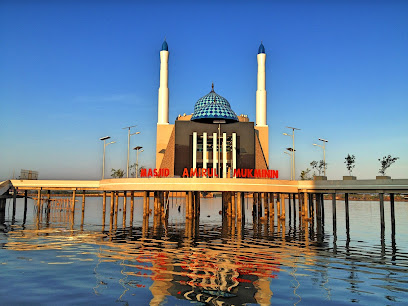
Tiger park
Explore Tiger Park in Makassar, a wildlife oasis where tigers and diverse fauna thrive amid stunning landscapes.
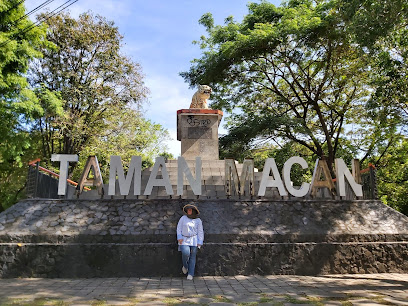
Rammang Rammang Karst Village
Explore the mesmerizing Rammang Rammang Karst Village in South Sulawesi, a natural paradise with stunning limestone formations and rich cultural experiences.
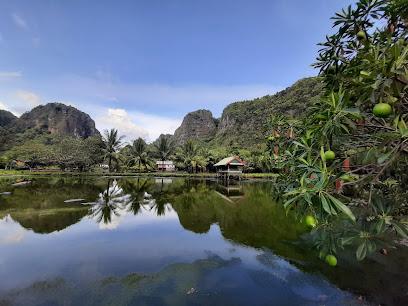
Bantimurung Bulusaraung National Park
Explore the stunning landscapes and vibrant wildlife of Bantimurung Bulusaraung National Park, a must-visit destination for nature lovers in South Sulawesi.
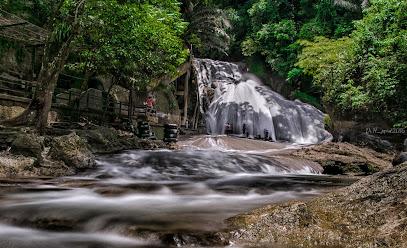
Museum Balla Lompoa
Explore the rich history and culture of South Sulawesi at Museum Balla Lompoa, showcasing the legacy of the Gowa Kingdom through unique artifacts.
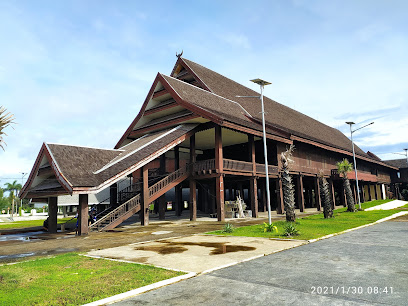
Leang Leang Archaeological Park
Explore the fascinating prehistoric heritage of Leang Leang Archaeological Park in South Sulawesi, featuring ancient rock art and breathtaking limestone landscapes.
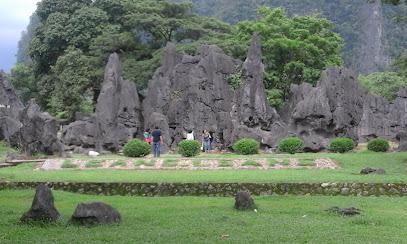
Pier I Rammang-Rammang
Explore the stunning karst landscapes and tranquil waters of Pier I Rammang-Rammang, a must-visit tourist attraction in South Sulawesi.
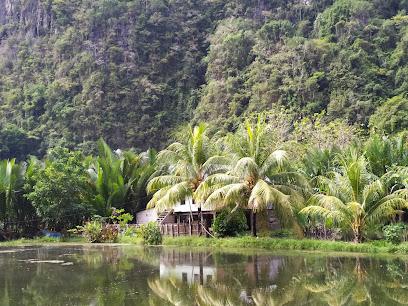
Samalona Island
Experience the breathtaking beauty and vibrant marine life of Samalona Island, a tropical paradise just off the coast of Makassar, Indonesia.
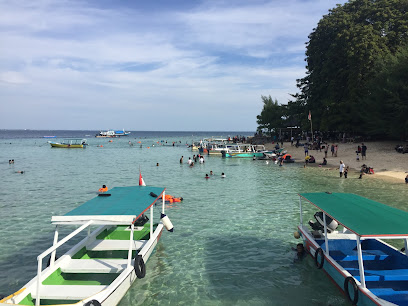
Mandala Monument of West Irian Liberation
Explore the Mandala Monument of West Irian Liberation in Makassar: A stunning symbol of cultural heritage and historical significance.
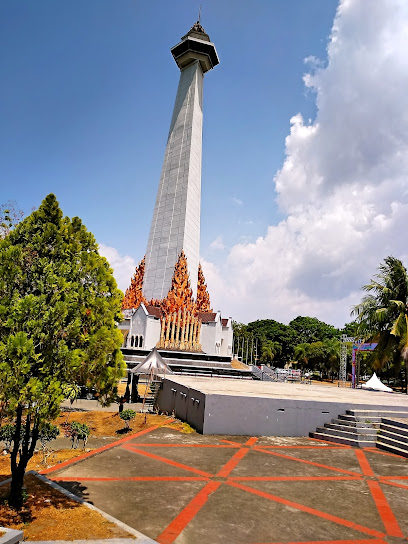
Wisata Mangrove Lantebung
Experience the lush tranquility of Wisata Mangrove Lantebung, a beautiful garden in Makassar, where nature meets conservation in a serene setting.
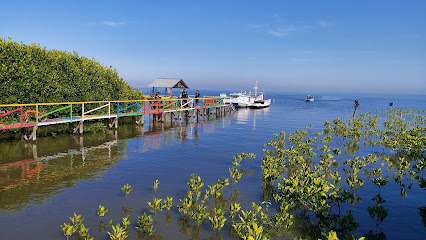
Essential places to dine
Aroma Coto Gagak
Experience authentic South Sulawesi cuisine at Aroma Coto Gagak, home of delicious Soto dishes in the vibrant city of Makassar.
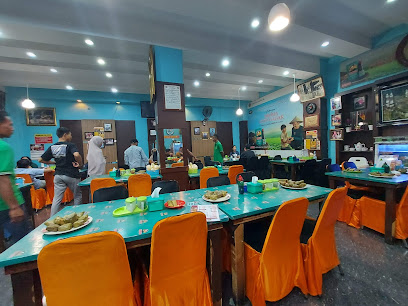
MIE TITI Panakkukang
Experience authentic Chinese noodles at MIE TITI Panakkukang – a culinary gem in Makassar's vibrant dining scene.
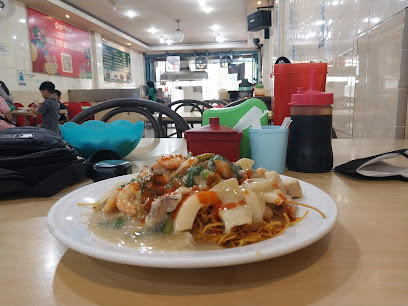
Ulu Juku Catering And Restaurant
Discover authentic Indonesian cuisine at Ulu Juku Catering And Restaurant in Makassar – where every dish tells a story.
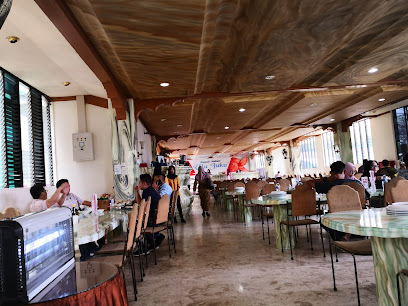
Rumah Makan & Seafood Losari
Experience the best of Makassar's seafood at Rumah Makan & Seafood Losari - fresh flavors, traditional recipes, and a warm atmosphere await you.
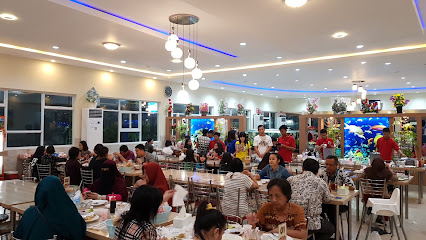
Coto Paraikatte
Discover authentic South Sulawesi flavors at Coto Paraikatte in Makassar - home of the finest Soto dishes!
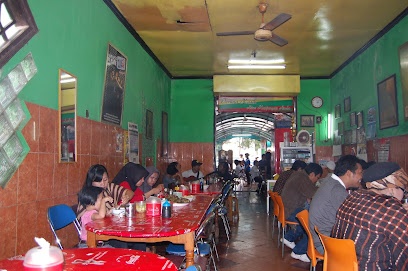
Rumah Makan Nelayan
Experience the best of Makassar's seafood cuisine at Rumah Makan Nelayan, where fresh flavors meet warm hospitality in a vibrant setting.
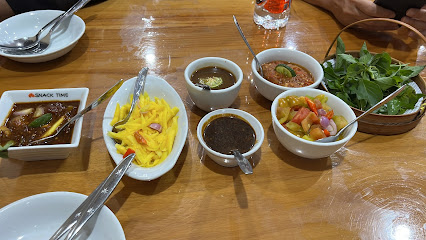
Sop Saudara Irian
Experience authentic South Sulawesi flavors at Sop Saudara Irian, where delicious soups and warm hospitality create unforgettable dining moments.
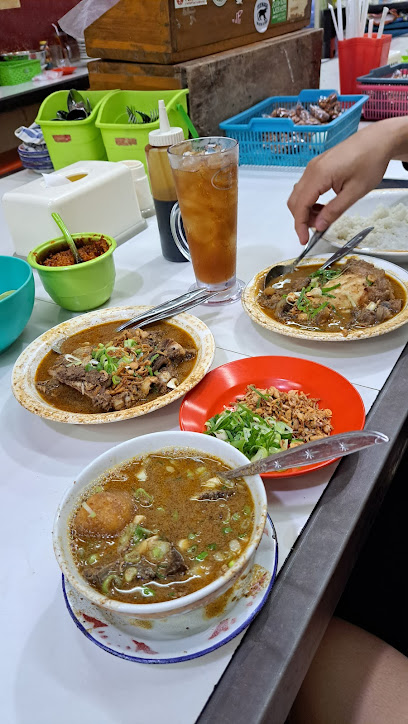
Rumah Makan Muda Mudi
Experience authentic South Sulawesi cuisine at Rumah Makan Muda Mudi in Makassar - where every meal tells a story.
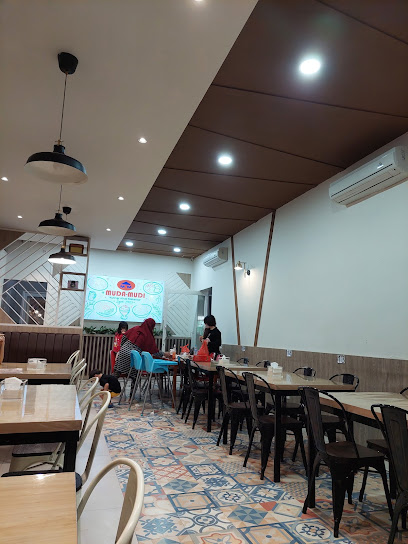
Ratu Gurih Seafood Market & Resto
Experience authentic Indonesian seafood at Ratu Gurih Seafood Market & Resto in Makassar – where every dish tells a story of oceanic delight.
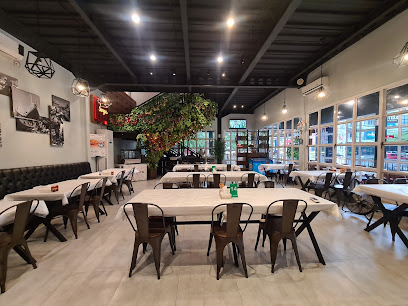
Sop Saudara
Discover authentic South Sulawesi cuisine at Sop Saudara in Makassar—home to rich flavors and traditional dishes served with warmth.
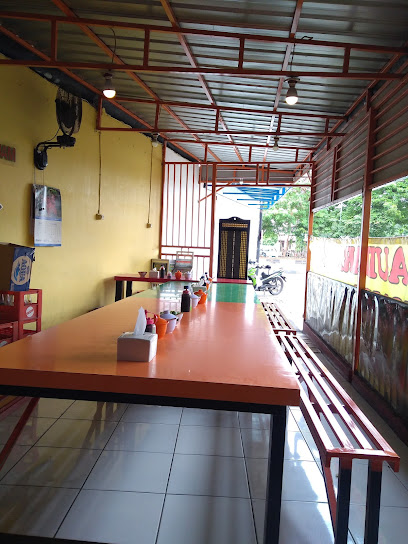
Pancious Pancake House
Discover Pancious Pancake House in Makassar: where delicious pancakes meet Indonesian flavors in a cozy dining atmosphere.
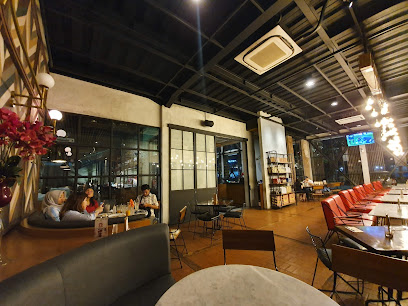
Madaeng Grilled Chicken
Experience authentic Javanese flavors at Madaeng Grilled Chicken in Makassar - where every bite tells a story.
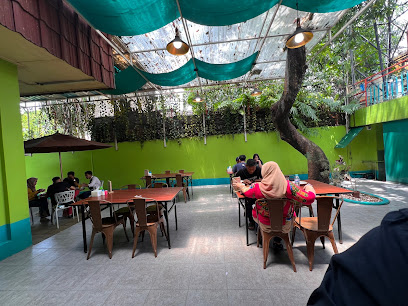
Cafe Agung
Discover Cafe Agung in Makassar – where local flavors meet international cuisine in a cozy setting.
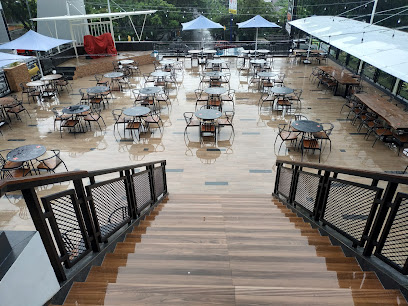
Rumah Makan Lae Lae
Discover authentic South Sulawesi seafood at Rumah Makan Lae Lae - where Ikan Bakar takes center stage in a vibrant dining atmosphere.
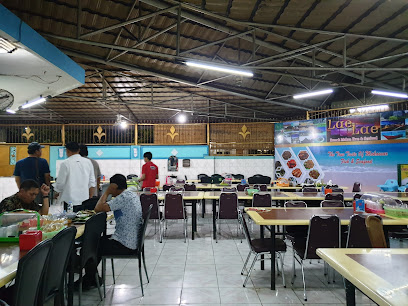
Restoran Surya Super Crab Makassar
Experience the ultimate seafood delight at Restoran Surya Super Crab in Makassar - where fresh flavors meet unforgettable moments.
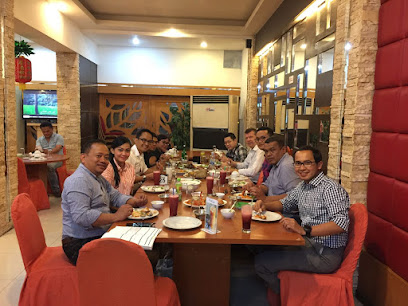
Markets, malls and hidden boutiques
Trans Studio Mall Makassar
Experience the ultimate shopping and entertainment hub at Trans Studio Mall Makassar, where every visit is an adventure waiting to happen.
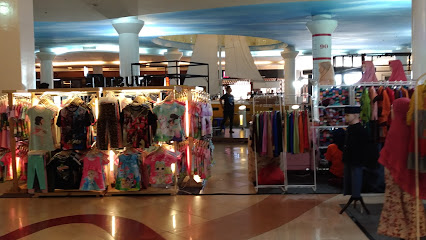
Phinisi Point Mall
Explore Phinisi Point Mall in Makassar: A vibrant shopping destination with diverse brands, delightful dining, and cultural experiences in the heart of Sulawesi.
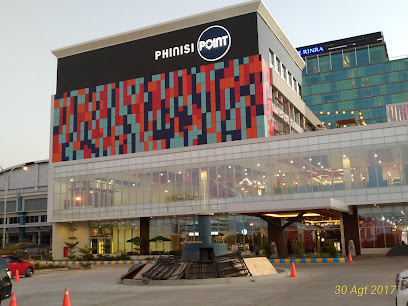
Alaska Store
Explore the Alaska Store in Makassar for a diverse range of electronics, computers, and home improvement tools, all at competitive prices.
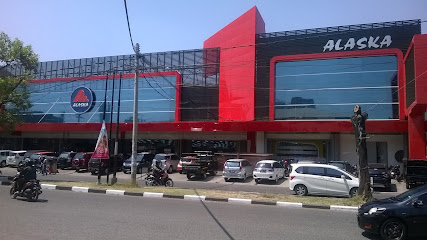
Toko Kerajinan Unggul
Explore Toko Kerajinan Unggul in Makassar for unique souvenirs and authentic crafts that showcase the artistry of Sulawesi's local culture.
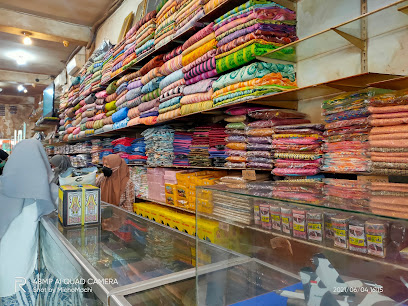
Cahaya Oleh-Oleh (Pusat)
Discover the essence of Sulawesi at Cahaya Oleh-Oleh, where local handicrafts and delicacies await you.
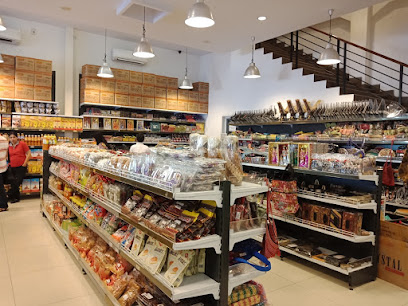
Mall Panakkukang
Experience the vibrant shopping and dining scene at Mall Panakkukang in Makassar, where local culture meets modern retail.
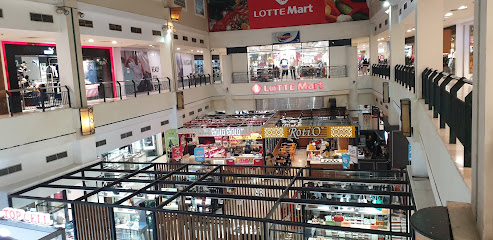
Toko Oleh-Oleh Kota Daeng
Explore Toko Oleh-Oleh Kota Daeng for authentic souvenirs and local delicacies in Makassar, capturing the essence of Sulawesi's vibrant culture.
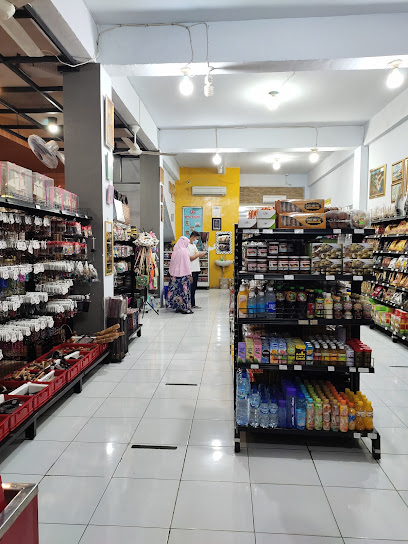
Missyshop.official
Experience the best of Indonesian fashion at Missyshop in Makassar, where style meets cultural elegance.
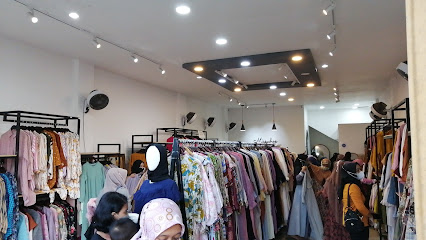
Losari Oleh Oleh
Explore the vibrant crafts of Makassar at Losari Oleh Oleh, where every item is a piece of Sulawesi's rich cultural heritage.
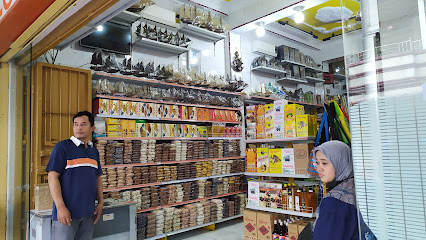
Matahari Department Store Mall Ratu Indah Makassar
Experience a world of shopping at Matahari Department Store in Makassar, where local and international brands meet in a vibrant retail setting.
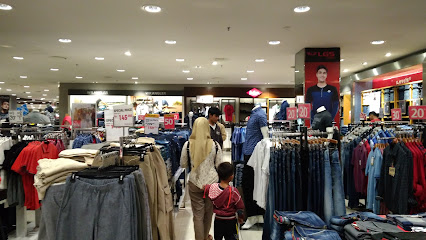
Sutera Sengkang Oleh Oleh Makassar
Explore the vibrant Sutera Sengkang Oleh Oleh Makassar for authentic souvenirs and local delicacies that capture the essence of Sulawesi.
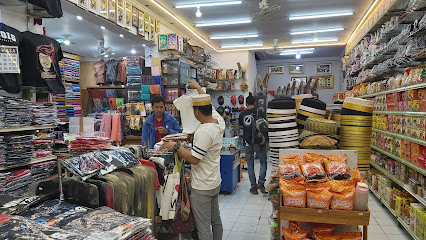
Toko Serba Ole-Ole
Explore the vibrant essence of Makassar at Toko Serba Ole-Ole, your ultimate destination for unique gifts and local delicacies.
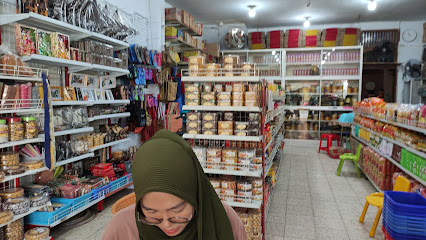
Toko KERADJINAN oleh2 souvenir shop
Explore the rich culture of Makassar through unique souvenirs at Toko KERADJINAN oleh2, your go-to shop for local crafts and gifts.

Toko Oleh Oleh Toraja
Discover unique Torajan souvenirs and traditional crafts at Toko Oleh Oleh Toraja, a must-visit souvenir store in Makassar.
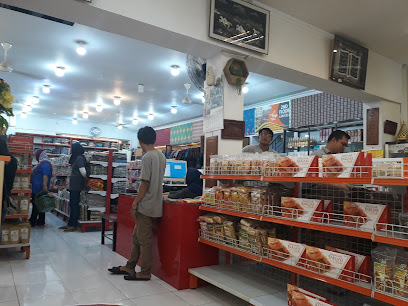
Issue Shop
Explore Makassar's premier clothing destination at Issue Shop, where trendy fashion meets local culture in a vibrant shopping experience.
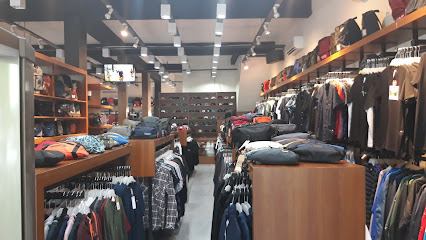
Essential bars & hidden hideouts
HW Helen's Live Bar Makassar
Discover the vibrant nightlife at HW Helen's Live Bar in Makassar, where live music and a welcoming atmosphere await.
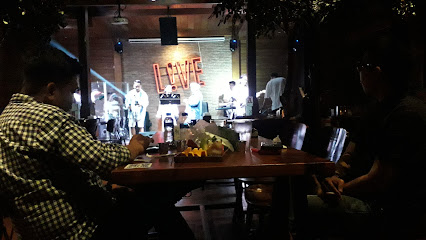
Gravity Sky Lounge
Enjoy breathtaking views and exquisite cuisine at Gravity Sky Lounge, Makassar's premier destination for relaxation and socializing.
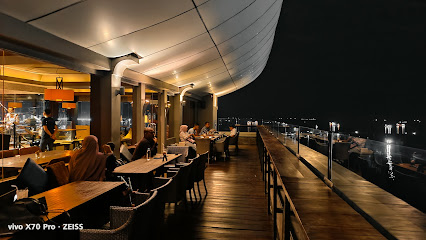
Publiq Dine & Wine
Discover the vibrant culinary scene at Publiq Dine & Wine in Makassar, where delightful flavors meet a lively atmosphere.
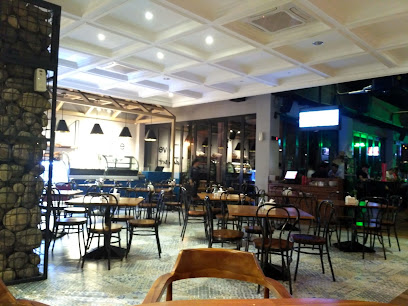
D'ORBIT
Experience the vibrant nightlife of Makassar at D'ORBIT, where live music, delicious drinks, and great company come together.
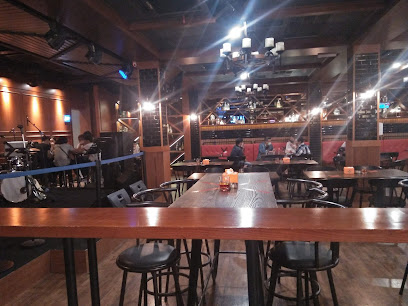
ON20 Bar & Dining Sky Lounge
Experience breathtaking views and exquisite flavors at ON20 Bar & Dining Sky Lounge in Makassar, where culinary excellence meets stunning cityscapes.
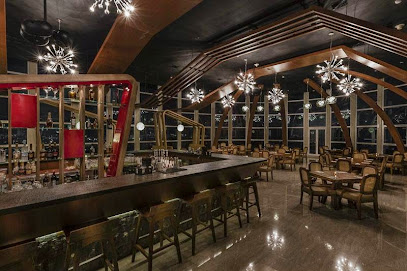
The Backyard
Experience the vibrant nightlife of Makassar at The Backyard, a lively bar offering unique drinks and a welcoming atmosphere for all.
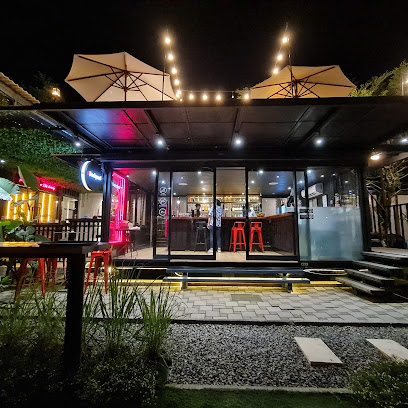
The Society Sky Dining & Bar
Elevate your dining experience at The Society Sky Dining & Bar, where stunning city views meet exquisite cuisine in the heart of Makassar.
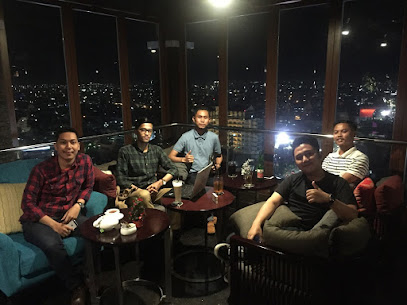
D'ORBIT KOMP RAMAYANA PETTARANI
D'ORBIT KOMP RAMAYANA PETTARANI: A vibrant bar in Makassar offering local drinks and a lively atmosphere for an unforgettable night out.
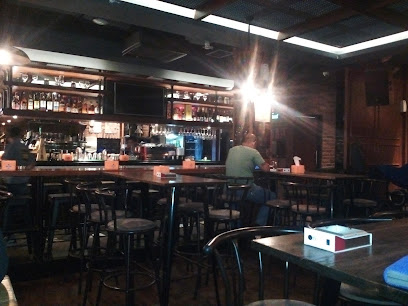
VINES Trans Studio Mall Makassar
Experience the vibrant nightlife of Makassar at VINES in Trans Studio Mall, where stylish ambiance meets an exceptional drink menu.
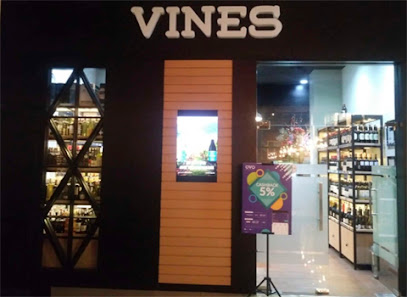
Club On 2 Karaoke - Bar
Experience the vibrant nightlife of Makassar with karaoke, drinks, and great company at Club On 2 Karaoke - Bar, the ultimate lounge destination.
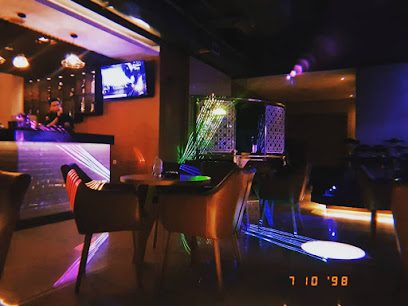
The Light
Discover the vibrant nightlife of Makassar at The Light, where great drinks and a lively ambiance await every visitor.
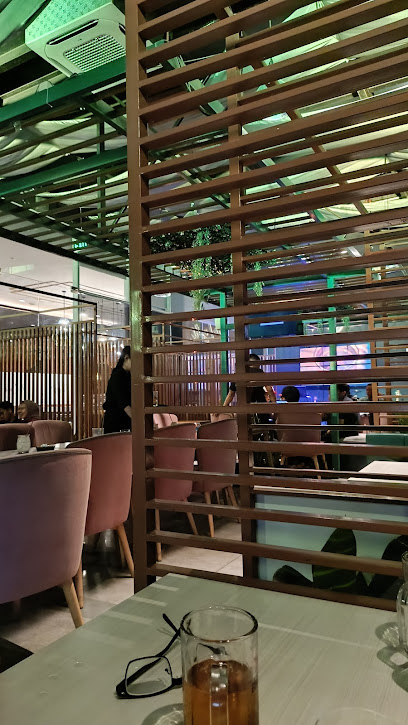
AZK93
Discover the lively ambiance and affordable drinks at AZK93 Bar in Makassar, where vibrant nightlife and local culture come together.
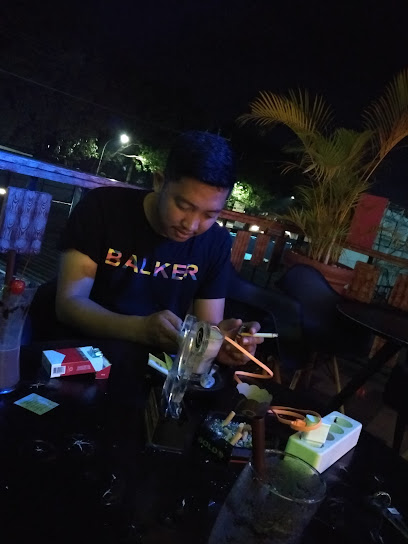
23 Lounge
Discover the vibrant nightlife at 23 Lounge in Makassar, offering a lively atmosphere and a selection of drinks for an unforgettable experience.
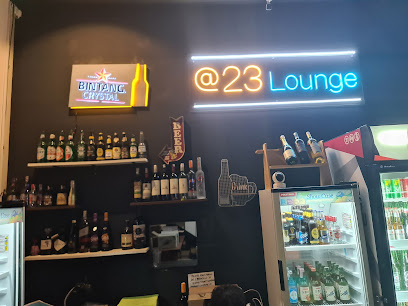
SPLASH MUSIC Makassar
Experience the vibrant nightlife of Makassar at SPLASH MUSIC, where music and drinks blend seamlessly for an unforgettable evening.
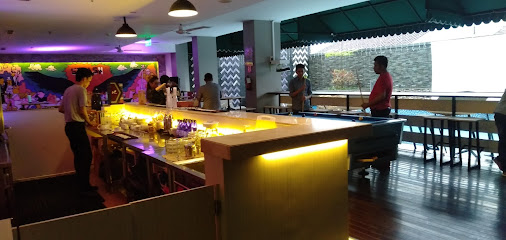
Local Phrases
-
- HelloSalama
[sa-la-ma] - GoodbyePamali
[pa-ma-li] - YesIya
[i-ya] - NoTidak
[ti-dak] - Please/You're welcomeTolong
[to-long] - Thank youMaturangang
[ma-tu-ran-gang] - Excuse me/SorryMaaf
[ma-af] - How are you?Kabar baik?
[ka-bar ba-ik] - Fine. And you?Baik. Kamu?
[ba-ik. ka-mu] - Do you speak English?Kamu bisa berbahasa Inggris?
[ka-mu bi-sa ber-ba-ha-sa ing-gris] - I don't understandSaya tidak mengerti
[sa-ya ti-dak men-ger-ti]
- HelloSalama
-
- I'd like to see the menu, pleaseBoleh lihat menu, tolong
[bo-le li-hat me-nu, to-long] - I don't eat meatSaya tidak makan daging
[sa-ya ti-dak ma-kan da-ging] - Cheers!Selong
[se-long] - I would like to pay, pleaseSaya mau bayar, tolong
[sa-ya mau ba-yar, to-long]
- I'd like to see the menu, pleaseBoleh lihat menu, tolong
-
- Help!Tolong!
[to-long] - Go away!Pergi!
[per-gi] - Call the Police!Panggil polisi!
[pang-gil po-li-si] - Call a doctor!Panggil dokter!
[pang-gil dok-ter] - I'm lostSaya tersesat
[sa-ya ter-se-sat] - I'm illSaya sakit
[sa-ya sa-kit]
- Help!Tolong!
-
- I'd like to buy...Saya ingin membeli...
[sa-ya in-gin mem-be-li] - I'm just lookingSaya hanya melihat-lihat
[sa-ya han-ya me-li-hat-li-hat] - How much is it?Berapa harganya?
[be-ra-pa har-ga-nya] - That's too expensiveItu terlalu mahal
[i-tu ter-la-lu ma-hal] - Can you lower the price?Bisa diturunkan harganya?
[bi-sa di-tu-run-kan har-ga-nya]
- I'd like to buy...Saya ingin membeli...
-
- What time is it?Jam berapa sekarang?
[jam be-ra-pa se-ka-rang] - It's one o'clockSekarang pukul satu
[se-ka-rang pu-kul sa-tu] - Half past (10)Setengah (sepuluh)
[se-ten-gah (se-pu-luh)] - MorningPagi
[pa-gi] - AfternoonSore
[so-re] - EveningMalam
[ma-lam] - YesterdayKemarin
[ke-ma-rin] - TodayHari ini
[ha-ri i-ni] - TomorrowBesok
[be-sok] - 1Satu
[sa-tu] - 2Dua
[du-a] - 3Tiga
[ti-ga] - 4Empat
[em-pat] - 5Lima
[li-ma] - 6Enam
[e-nam] - 7Tujuh
[tu-juh] - 8Delapan
[de-la-pan] - 9Sembilan
[sem-bi-lan] - 10Sepuluh
[se-pu-luh]
- What time is it?Jam berapa sekarang?
-
- Where's a/the...?Dimana ada/...?
[di-ma-na a-da/...?] - What's the address?Alamatnya apa?
[a-lam-at-nya a-pa] - Can you show me (on the map)?Bisa tunjukkan (di peta)?
[bi-sa tun-juk-kan (di pe-ta)] - When's the next (bus)?Kapan yang berikutnya (bis)?
[ka-pan yang be-ru-tu-nya (bis)] - A ticket (to ....)Tiket (ke ....)
[ti-ket (ke ....)]
- Where's a/the...?Dimana ada/...?
History of Makassar
-
Makassar's history stretches back to the 14th century, with the rise of the Kingdom of Gowa. This powerful kingdom became a major maritime power in the eastern Indonesian archipelago. The rulers of Gowa were instrumental in establishing Makassar as a bustling port city, facilitating trade with regions as far as India, China, and the Middle East.
-
In the early 17th century, Makassar became a significant center for the spread of Islam in Indonesia. The conversion of King Alauddin of Gowa to Islam in 1605 marked a pivotal moment. The city became a hub for Islamic learning and culture, attracting scholars and traders from across the Muslim world.
-
The strategic importance of Makassar caught the eye of European colonial powers. The Dutch East India Company (VOC) sought control over Makassar's trade routes and clashed with the Kingdom of Gowa. The Battle of Makassar in 1667 resulted in the defeat of Gowa and the signing of the Treaty of Bongaya, which gave the VOC control over the city and its trade.
-
Fort Rotterdam, originally built by the Gowa Kingdom, was expanded and fortified by the Dutch. This fort became a symbol of Dutch colonial power in Makassar. The architecture within the fort and the surrounding area showcases a blend of indigenous and European styles, reflecting the city's complex history.
-
During the Indonesian National Revolution (1945-1949), Makassar played a crucial role. The city saw significant military action as local forces resisted Dutch attempts to re-establish colonial control. The struggle in Makassar was part of the broader push for Indonesian independence, which was finally achieved in 1949.
-
Makassar is known for its rich cultural tapestry, influenced by various ethnic groups, including the Bugis, Makassarese, Chinese, and Arabs. This diversity is reflected in the city's cuisine, traditions, and festivals. The annual Makassar International Eight Festival and Forum showcases the city's vibrant cultural heritage, featuring traditional music, dance, and culinary arts.
-
Today, Makassar is a thriving metropolis and the largest city in eastern Indonesia. It continues to be a major port and economic hub, with a bustling waterfront and modern infrastructure. The city balances its historical heritage with rapid development, making it a fascinating destination for travelers seeking both cultural and contemporary experiences.
Makassar Essentials
-
Makassar, the capital of South Sulawesi, is accessible via Sultan Hasanuddin International Airport (UPG), located about 20 kilometers from the city center. The airport serves both domestic and international flights. From the airport, you can take a taxi or use ride-hailing services like Grab to reach the city. Alternatively, DAMRI buses operate routes from the airport to various parts of Makassar. For those traveling by sea, Makassar can be reached via Pelabuhan Soekarno-Hatta, a major port that connects to other Indonesian islands.
-
Getting around Makassar is relatively easy with various modes of transportation available. Taxis and ride-hailing services like Grab are convenient and widely used. Public transportation includes 'pete-pete' (minibuses) that cover most parts of the city. For short distances, motorbike taxis known as 'ojek' are a quick and affordable option. Renting a car or motorbike is also possible for more independent exploration. Note that traffic can be heavy, especially during rush hours.
-
The official currency in Indonesia is the Indonesian Rupiah (IDR). Credit and debit cards are accepted in most hotels, restaurants, and larger shops, but it is advisable to carry cash for smaller establishments and local markets. ATMs are widely available throughout Makassar. Currency exchange services can be found at the airport, banks, and authorized money changers in the city. It is recommended to have some small denominations for easier transactions.
-
Makassar is generally safe for tourists, but it is important to take common precautions. Avoid displaying valuables and be cautious in crowded places to prevent pickpocketing. Some areas, such as Panakkukang and parts of Tallo, have higher crime rates and should be avoided, especially at night. Stick to well-lit and populated areas and use registered taxis or ride-hailing services. Always be aware of your surroundings and follow local guidelines.
-
In case of emergency, dial 112 for general assistance. For police, dial 110, and for medical emergencies, dial 118. Sultan Hasanuddin University Hospital and Wahidin Sudirohusodo Hospital are among the major medical facilities in Makassar. Pharmacies are readily available for minor health issues. It is advisable to have travel insurance that covers medical emergencies. Keep a copy of important contacts, such as your country's embassy or consulate, for additional support.
-
Fashion: Do dress modestly, especially when visiting religious sites. Avoid wearing revealing clothing. Religion: Do respect local customs and traditions. Remove your shoes when entering mosques and wear modest attire. Public Transport: Do be respectful and give up your seat to elderly passengers. Don't eat or drink on public transport. Greetings: Do greet people with a smile and a slight bow of the head. A handshake is also common. Eating & Drinking: Do try local delicacies and accept food offerings graciously. Don't refuse hospitality, as it is considered impolite.
-
To experience Makassar like a local, visit the traditional markets such as Pasar Butung and Pasar Sentral for fresh produce and unique souvenirs. Engage with locals, who are often friendly and willing to share insights about the city's culture and history. Don't miss trying local dishes like Coto Makassar and Pisang Epe at street food stalls. For a unique experience, take a boat ride to the nearby islands like Samalona Island for beautiful beaches and snorkeling opportunities. Attend local festivals such as the Makassar International Eight Festival and Forum (F8) for cultural performances and events.
Trending Landmark in Makassar
-
Losari Beach Platform
-
Fort Rotterdam
-
Bugis Waterpark Adventure
-
Tiger park
-
Fort van Gowa Sultanaat - Benteng Somba Opu
-
Mandala Monument of West Irian Liberation
-
Dermaga Kayu Bangkoa
-
Museum of Makassar
-
La Galigo Museum
-
Travel Island Lakkang
-
Pulau Kodingareng Keke
-
Eks Raad van Justitia te Makassar
-
Jalanan Tutup
-
lokasi 1
-
Prisão dentro do Forte de Makassar
Nearby Cities to Makassar
-
Things To Do in Balikpapan
-
Things To Do in Bali
-
Things To Do in Ermera
-
Things To Do in Gleno
-
Things To Do in Surabaya
-
Things To Do in Dili
-
Things To Do in Bobonaro
-
Things To Do in Aileu
-
Things To Do in Suai
-
Things To Do in Same
-
Things To Do in Baucau
-
Things To Do in Lospalos
-
Things To Do in Manado
-
Things To Do in Semarang
-
Things To Do in Yogyakarta









